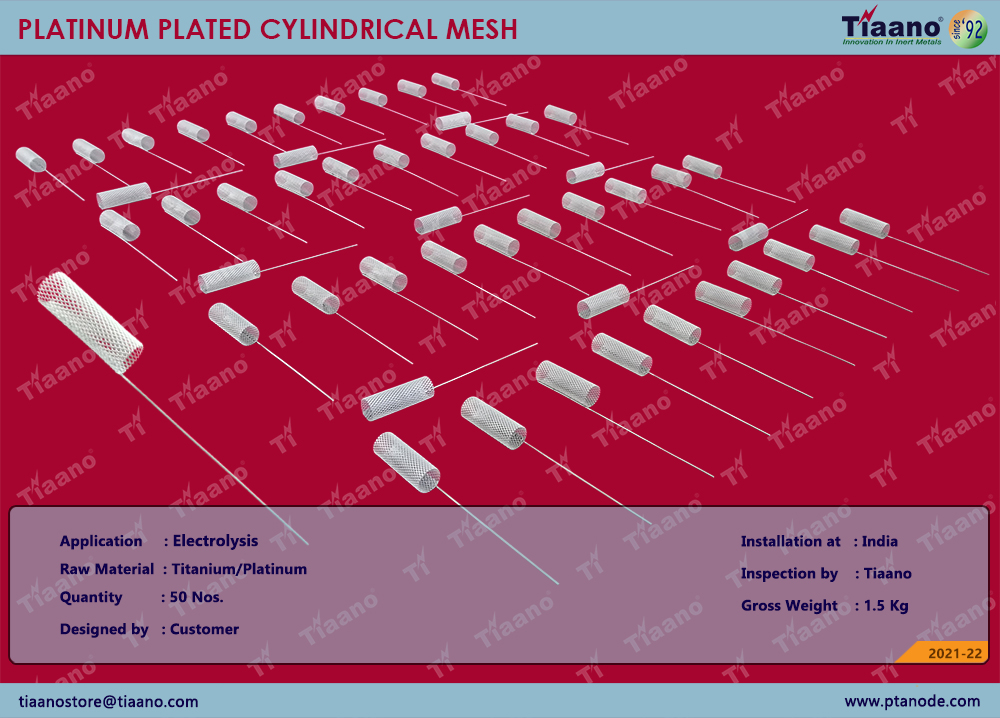Platinum Plated titanium insoluble anodes are based on titanium metal as anodes in the form of mesh, plates, rods, and tubes. The thickness of the standard platinum layer is 2-5µm. Under higher requirements, the thickness of the platinum layer can reach 20µm. The service life of the platinum plated titanium anode depends on the working medium (electrolyte) and the current strength (current density) of the anode. The current density should not exceed 75A / dm2. According to experience, the wear of the platinum layer is about 1-4 grams per million amp-hours in a fluorine-free chromium plating solution. When the current density is higher than 75A / dm2 or using a fluorine-containing electrolyte.
Features of Platinum Plating:-
Application of the platinum layer on the titanium base substrate is best carried out electrochemically in molten salt via high-temperature electrolysis. The anodes that were platinum-plated using the HTE process are clearly superior to those coated in aqueous electrolytes. The purity of the molten salt platinum coating is at least 99.9 percent and therefore significantly higher than the purity of platinum layers deposited from aqueous solutions. Ductility, adhesion and corrosion resistance are significantly improved and inner tensions are minimal.
Parameters of Platinum Plated Titanium Mesh Anode:
Anode material: Titanium Grade 1 or 2
Plating or coating: Pure Platinum
Platinum Thickness: 0.5 Micron to 20 Micron
Anodes Shapes: Mesh, plate, sheet, tube, rod or customize;
Operating life: Min.3 years or customize.

Details of Platinum Plated Titanium Cylindrical Mesh Anode:-
Tiaano: Manufacturer and Supplier of Platinum Plated Titanium Cylindrical mesh Anode.
Anode: Platinum Plated Mesh Anode, Platinum Plated Cylindrical Mesh Anode, Platinized Expanded Mesh Anode
Application: Electrolysis, Sensor,
Year of Established: 1992.
Installation at: Lucknow, India.
Inspection by: Tiaano.
You may refer more details from here:-
Facebook Page, Instagram Page, Twitter Page, Pinterest Page
Platinized Titanium & Niobium Anode (Dimensionally Stable Anode)